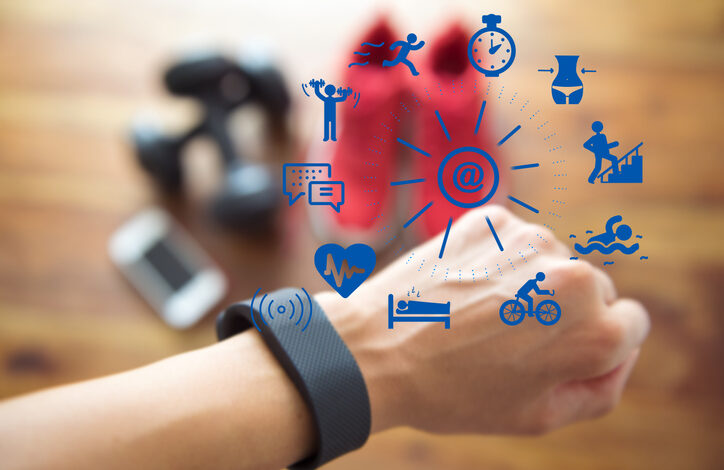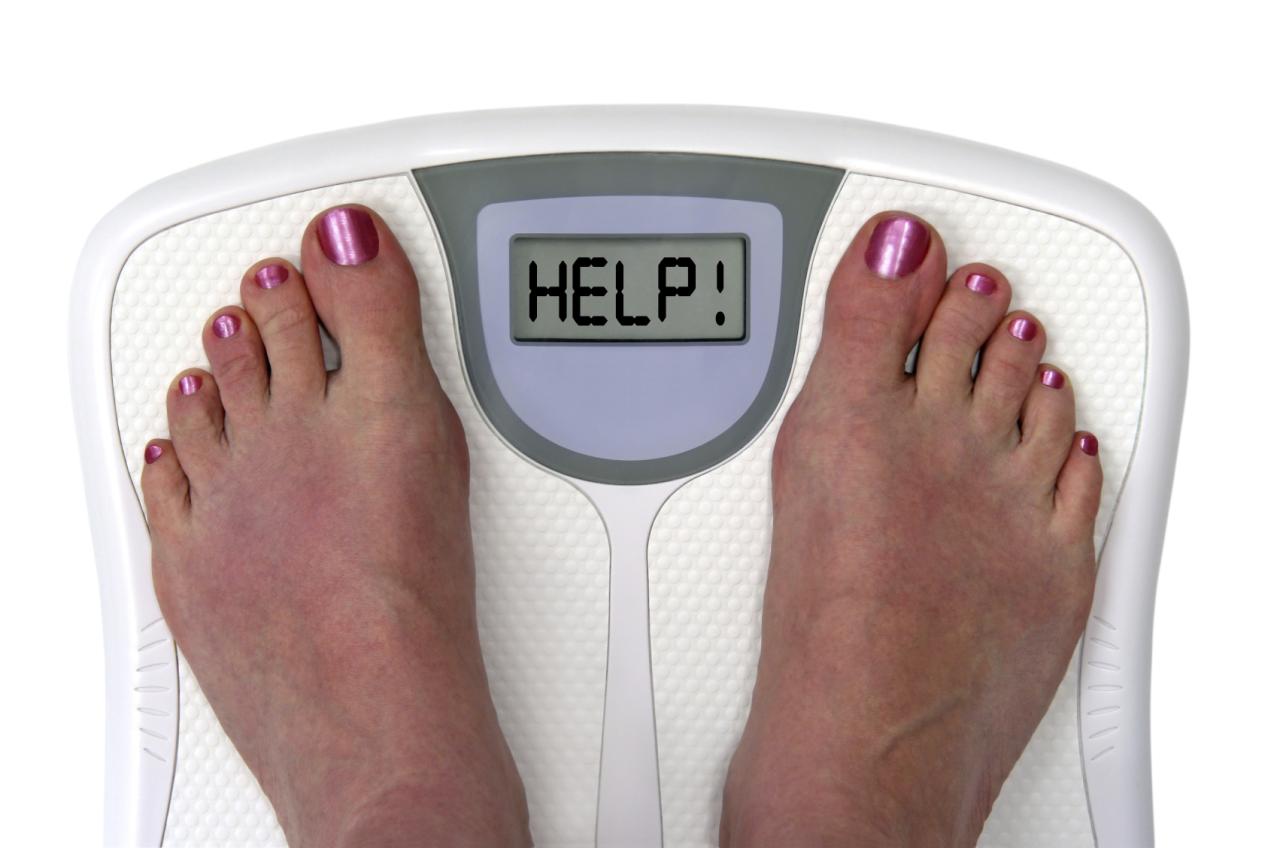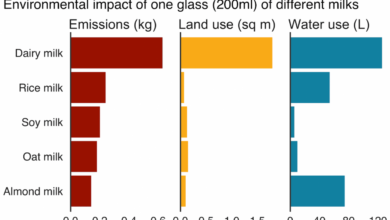
Could This New Scale Technology Aid Weight Loss?
Could this new scale technology aid weight loss? It’s a question on many minds, especially as technology continues to infiltrate our lives. Smart scales, boasting advanced features like body composition analysis, promise a deeper understanding of our bodies and a personalized approach to weight management.
But is this just another fitness fad, or could these scales truly be the key to unlocking sustainable weight loss?
The science behind these scales is fascinating. Beyond simply measuring weight, they delve into body composition, providing insights into muscle mass, bone density, and even water content. This detailed information can be a powerful tool for understanding our bodies and tailoring our weight loss strategies.
But how effective are these scales in practice? Do they truly motivate us to stick to our goals, or are they just another gadget collecting dust on the bathroom counter?
The Science Behind Scale Technology and Weight Loss

The ability to accurately track weight is crucial for successful weight loss. Traditional scales have long been the standard, but recent advancements in technology have introduced a new generation of scales that provide more comprehensive insights into body composition. This blog post will delve into the science behind these technologies and explore their potential impact on weight management.
Could this new scale technology aid weight loss? It’s definitely a promising tool for tracking progress, but it’s important to remember that weight loss is about more than just the numbers. You also need to focus on building healthy habits and finding ways to stay motivated.
That’s where exercise comes in, and if you’re struggling to stay engaged with your home workouts, check out these 8 fun ways to avoid home workout boredom. Ultimately, a combination of smart technology, healthy lifestyle choices, and a bit of fun is the key to achieving your weight loss goals.
How Scale Technology Measures Weight and Body Composition
Scales measure weight by utilizing the principle of force. When you stand on a scale, your body exerts a downward force on the platform. The scale measures this force and converts it into a weight reading. Traditional scales only measure overall weight, but smart scales and body composition analyzers go beyond this basic measurement.Body composition analyzers employ various methods to assess body composition, including:
- Bioelectrical Impedance Analysis (BIA):This method sends a small electrical current through the body. By measuring the resistance to the current, BIA can estimate the proportion of fat, muscle, and water in the body.
- Air Displacement Plethysmography (ADP):This technique measures the volume of air displaced by your body when you sit inside a sealed chamber. By knowing the volume of air displaced and your weight, ADP can calculate body density and estimate body composition.
- Dual-Energy X-ray Absorptiometry (DEXA):This method uses two different X-ray beams to measure bone mineral density, fat mass, and lean mass. DEXA is considered the gold standard for body composition analysis, but it is more expensive and not readily available in home settings.
The Impact of Accurate Weight Tracking on Motivation and Adherence to Weight Loss Goals
Accurate weight tracking can significantly impact motivation and adherence to weight loss goals. When individuals see consistent progress, they are more likely to stay committed to their weight loss journey.
It’s exciting to see how technology like smart scales can help us understand our bodies better. But let’s be honest, even with all the data, we still need a solid plan to reach our goals. If you’re feeling stuck in a meal prep rut, check out these 6 proven ways to get out of a meal prep plateau to get back on track.
Ultimately, whether it’s a new scale or a new meal prep strategy, the key to success is finding what works for you and sticking with it!
Regular weight monitoring provides valuable feedback on the effectiveness of diet and exercise interventions. This feedback allows individuals to make necessary adjustments to their plans, maximizing their chances of success.
While a new scale technology might help track weight loss, it’s just one piece of the puzzle. A big part of healthy eating is finding creative ways to use leftovers. Check out this article on 5 ways to turn last night’s leftovers into morning’s breakfast , it’s a great way to cut down on food waste and save money! Ultimately, weight loss is about making sustainable changes to your lifestyle, and that includes finding delicious and convenient ways to eat healthy.
Comparing the Effectiveness of Different Scale Technologies
- Traditional Scales:These scales are inexpensive and readily available, providing a basic measurement of overall weight. However, they lack the ability to assess body composition, which can be essential for understanding weight loss progress.
- Smart Scales:These scales combine traditional weight measurement with body composition analysis using BIA. They typically connect to smartphones or other devices, allowing users to track their weight and body composition over time. Smart scales can provide more detailed insights into weight loss progress than traditional scales, potentially motivating users to stick to their goals.
- Body Composition Analyzers:These devices use more sophisticated methods, such as ADP or DEXA, to provide a more accurate assessment of body composition. While they offer the most comprehensive information, they are typically more expensive and may not be as readily available as traditional or smart scales.
The Role of Technology in Behavioral Change for Weight Loss: Could This New Scale Technology Aid Weight Loss
![]()
Technology has revolutionized the way we approach weight loss, offering a plethora of tools and resources to support individuals in their journey towards a healthier lifestyle. Beyond the advancements in scale technology, the role of technology in behavioral change is crucial, empowering individuals to take control of their health and achieve sustainable weight loss.
The Benefits of Technology in Weight Tracking and Monitoring
Technology can play a significant role in promoting weight loss by providing individuals with real-time data and insights into their progress. Smart scales, fitness trackers, and mobile applications allow users to monitor their weight, food intake, and exercise levels with unprecedented accuracy.
This data can provide valuable feedback and motivation, enabling individuals to make informed decisions about their lifestyle choices.
- Enhanced Awareness:Tracking weight and other health metrics can provide individuals with a clearer understanding of their current status and progress, fostering greater self-awareness and accountability.
- Motivational Tool:Seeing progress and tracking changes can be highly motivating, encouraging individuals to stay on track and maintain their commitment to weight loss goals.
- Early Intervention:Regular monitoring can help identify potential weight fluctuations or unhealthy trends early on, allowing for timely intervention and adjustments to lifestyle strategies.
Technology’s Role in Developing Healthy Habits, Could this new scale technology aid weight loss
Technology can be instrumental in fostering healthy habits by providing individuals with the tools and support needed to make sustainable changes. Mobile applications, online platforms, and wearable devices offer a wide range of features designed to promote healthy eating, increase physical activity, and encourage mindful behavior.
- Personalized Guidance:Technology can provide customized recommendations based on individual needs, preferences, and goals, making it easier to adopt and maintain healthy habits.
- Interactive Support:Online communities, support groups, and virtual coaching can provide a sense of community and encouragement, fostering a supportive environment for individuals seeking to make positive changes.
- Behavioral Modification Tools:Mobile apps can utilize behavioral modification techniques, such as goal setting, progress tracking, and reward systems, to promote healthy habits and make lasting changes.
Comparing Technology-Based and Traditional Weight Loss Programs
While traditional weight loss programs have long been the standard approach, technology-based programs offer a distinct set of advantages. These programs often incorporate interactive elements, personalized guidance, and real-time data tracking, making them potentially more engaging and effective for some individuals.
- Accessibility and Convenience:Technology-based programs can be accessed anytime, anywhere, offering greater flexibility and convenience compared to traditional programs that often require in-person attendance.
- Personalized Approach:Technology-based programs can tailor their recommendations and support to individual needs and preferences, leading to more effective and sustainable results.
- Data-Driven Insights:Technology-based programs provide individuals with real-time data and insights into their progress, allowing for informed adjustments and improved outcomes.
Final Thoughts

While scale technology can certainly play a role in weight loss, it’s crucial to remember that it’s just one piece of the puzzle. A holistic approach that addresses nutrition, exercise, and mental health is essential for achieving lasting results.
Ultimately, the most effective weight loss strategies are those that are tailored to individual needs and preferences, and scale technology can be a valuable tool in this process.






